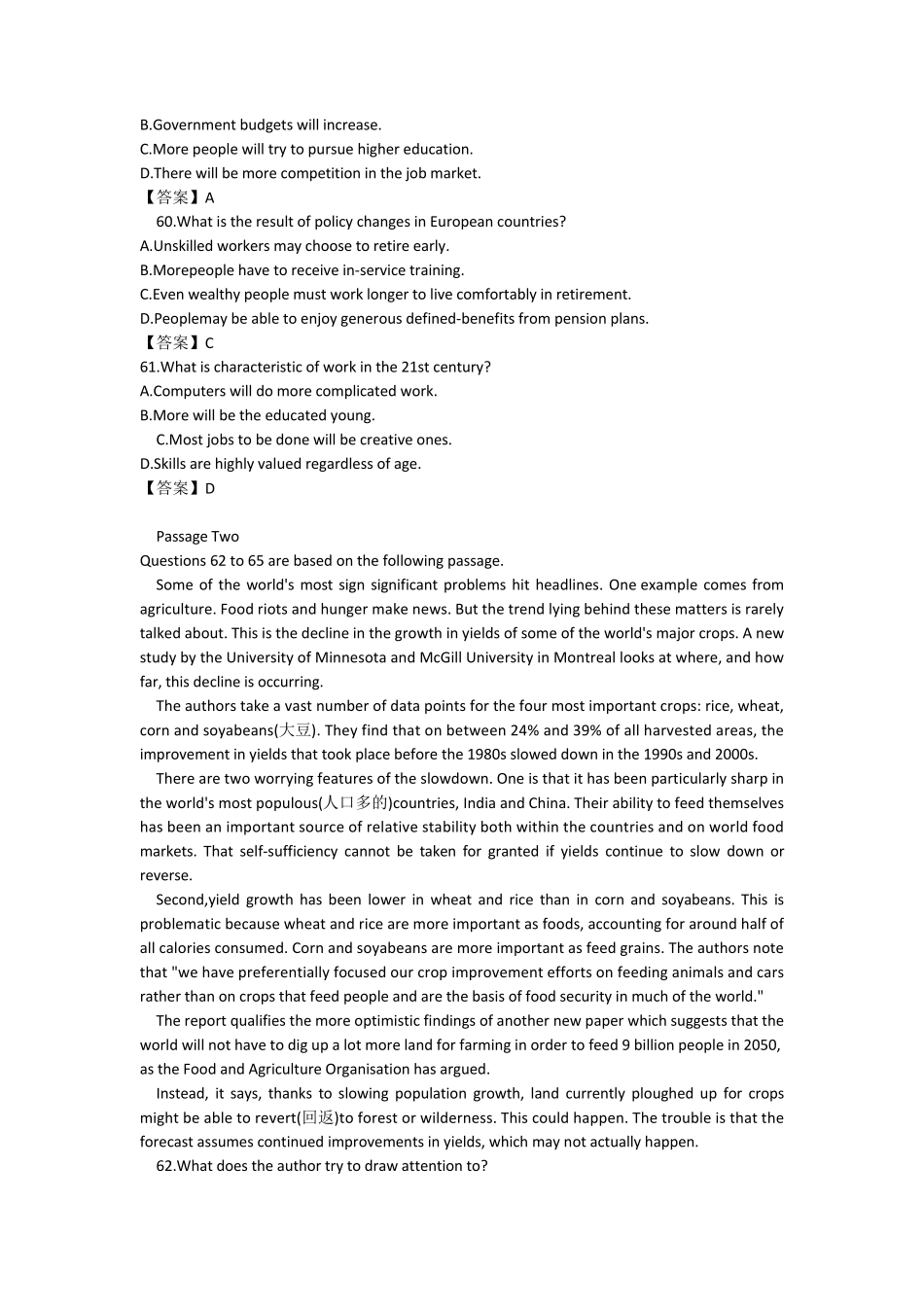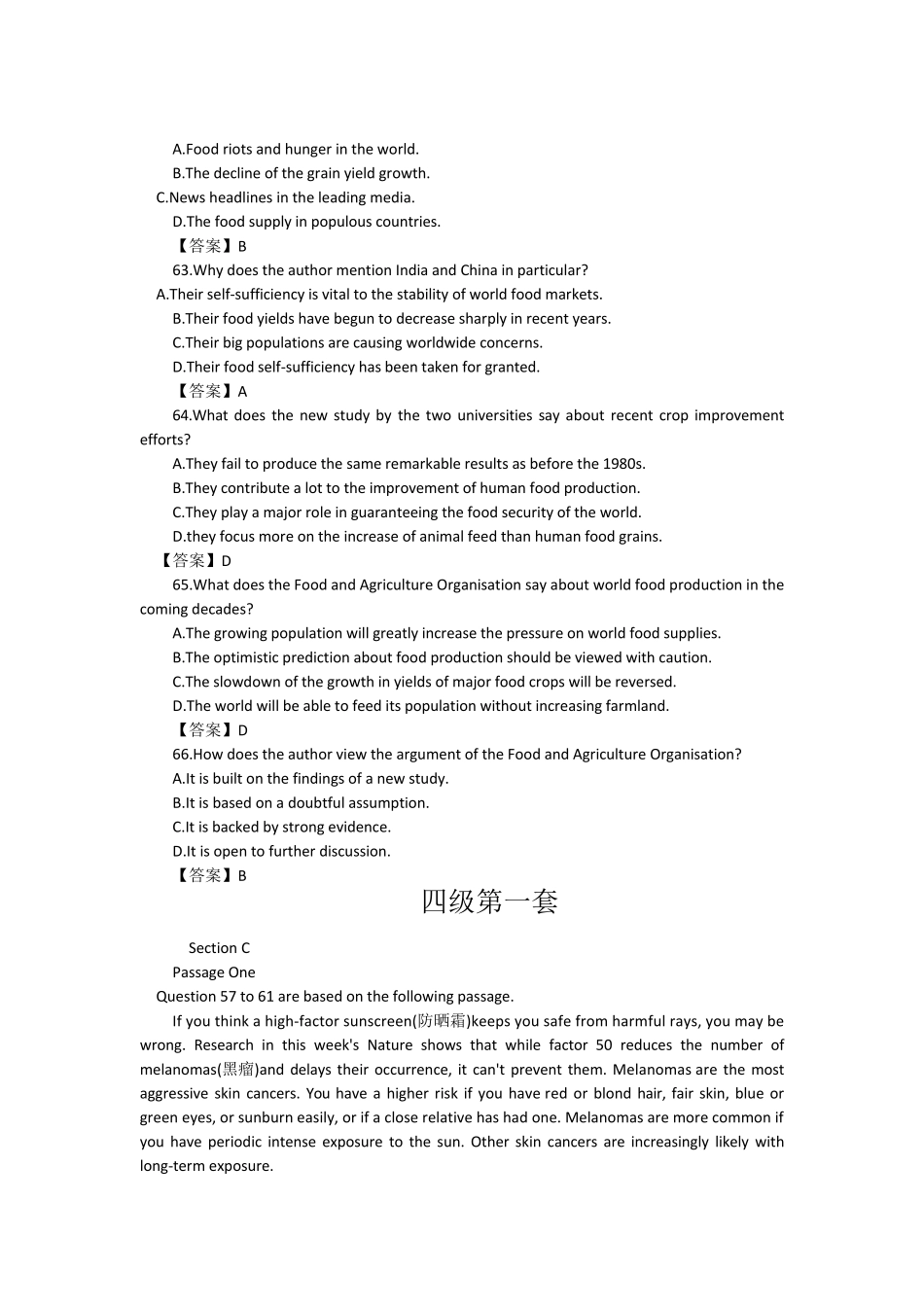四级第二套 Section C Passage One Questions 57 to 61 are based on the following passage. Across the rich world, well-educated people increasingly work longer than the less-skilled. Some 65% of American men aged 62-74 with a professional degree are in the workforce, compared with 32% of men with only a high-school certificate. This gap is part of a deepening divide between the well-educatedwell-off and the unskilled poor. Rapid technological advance has raised the incomes of the highly skilled while squeezing those of the unskilled. The consequences, for individuals and society, are profound. The world is facing an astonishing rise in the of old people, and they will live longer than ever before. Over the next 20 years the global population of those aged 65 or more will almost double, from 600 million to 1.1 billion. The experience of the 20th century, when greater longevity(长寿)translated into more years in retirement rather than more years at work, has persuaded many observers that this shift will lead to slower economic growth, while the swelling ranks of pensioners will create government budget problems. But the notion of a sharp division between the working young and the idle old misses a new trend, the growing gap between the skilled and the unskilled. Employment rates are failing among younger unskilled people, whereas older skilled folk are working longer.The divide is most extreme in America, where well-educated baby-boomers(二战后生育高峰期出生的美国人)areputting off retirement while many less-skilled younger people have abandoned policies that used Xto retire early. Rising life expectancy(预期生命),combined with the replace- Xpension plans with less generous defined-contribution ones, means that e...


